100% Biodegradable | No Recycling Needed | Compostable | No Plasticizers | Non-Toxic Product
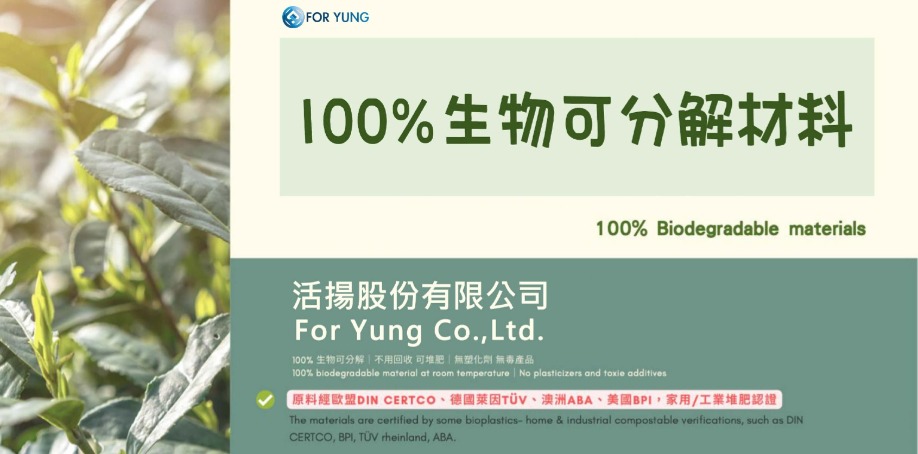
The raw materials are certified by EU DIN CERTCO, Germany's TÜV Rheinland, Australia's ABA, and the United States' BPI for home/industrial compostability.
100% Biodegradable Material - Straw
Approximately 120 days to completely biodegrade in soil into water and carbon dioxide, leaving no plastic micro-particles.
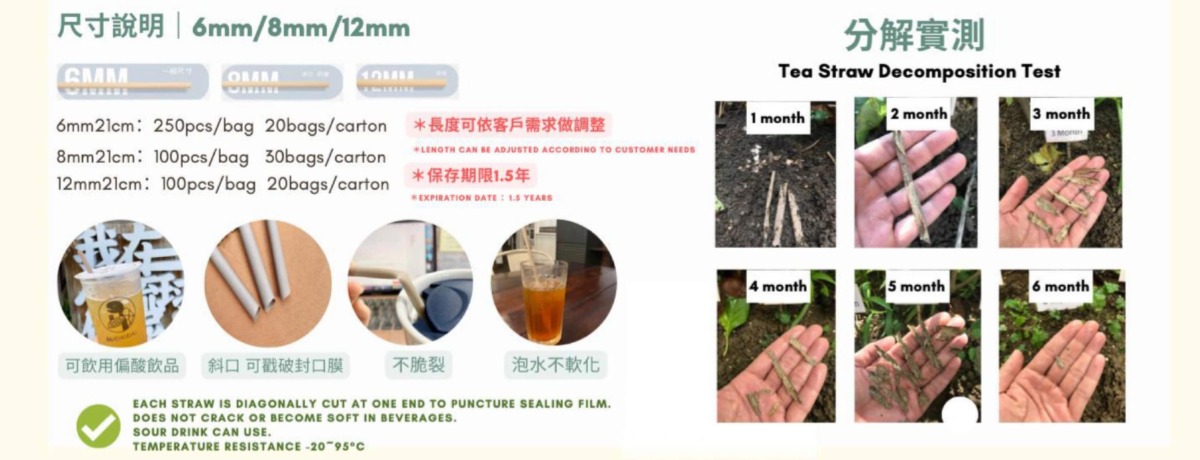
100% Biodegradable Material - Dental Floss Picks
Naturally biodegrades into water and carbon dioxide in ambient temperature soil, leaving no plastic micro-particles.
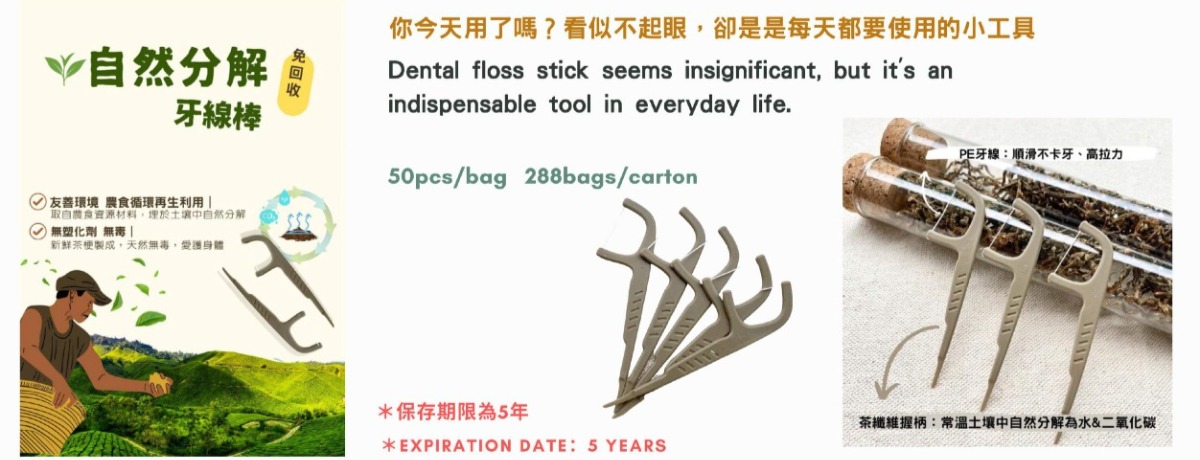
100% Biodegradable Utensil Set
Approximately 180 days to completely biodegrade in soil into water and carbon dioxide, leaving no plastic micro-particles.
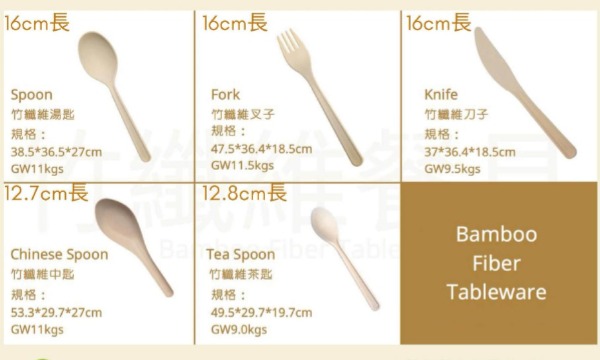
Heavy-duty Cutlery
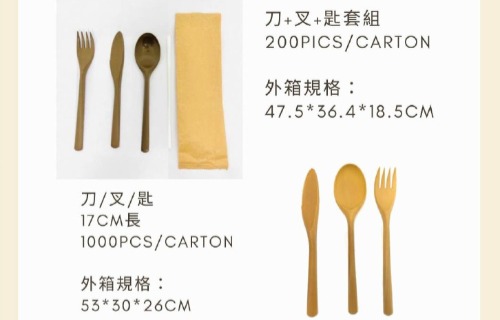
Disposable Cutlery
The utensils have a storage lifespan of 5 years and are temperature-resistant from -20°C to 95°C.
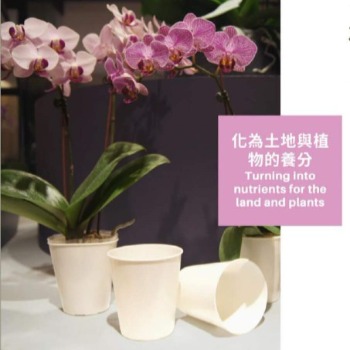
Two-in-One Flower Planter
Completely biodegrades in soil into water and carbon dioxide within 6 months, leaving no plastic micro-particles.
As the seedlings grow with cultivation, there is no need for repotting. The finished product can be directly marketed and displayed.
Decomposition time can be extended based on cultivation needs.

Biodegradation Testing Results
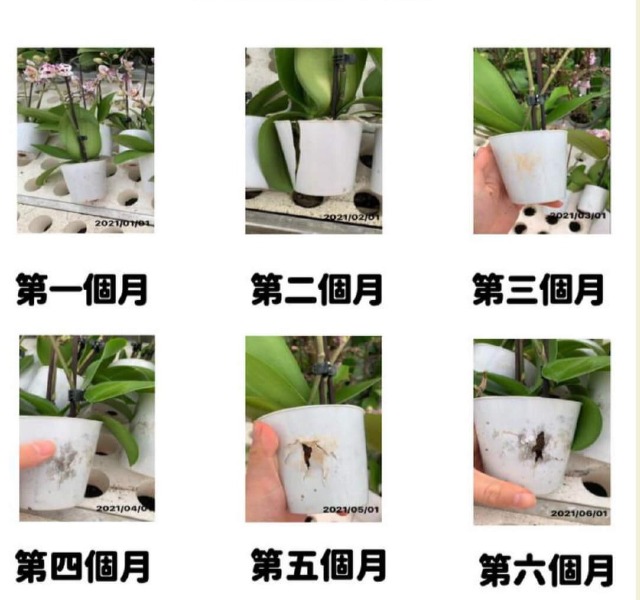
100% Biodegradable Material - Other Products
100% Biodegradable, completely decomposes into water and carbon dioxide in soil, leaving no plastic micro-particles.
Customizable products adjustable to customer needs, such as decomposition time, temperature resistance, product hardness, and pressure tolerance.
Cushioning Protective Packaging Materials - Bubble Wrap, Air Column Bags
Agricultural Mulch
Fruit Net Bags
BB Pellets
Cups
Plates
Airplane Meal Trays
Cups
Plates
Packaging Bags
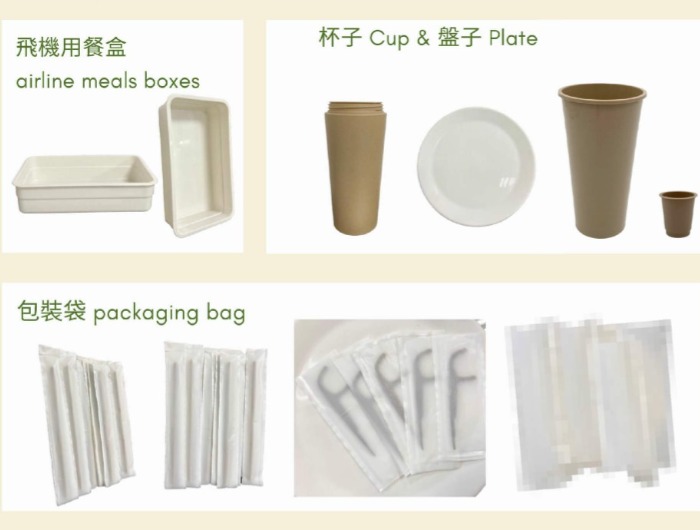

Three Major Global Environmental Challenges.
Currently, plastic production accounts for 6% of global carbon emissions, which is equivalent to the carbon emissions of the global aviation industry.
(According to the research report by the Ellen MacArthur Foundation, plastic production includes both the carbon emissions from production processes and the carbon footprint of plastic products.)
Mitigating the greenhouse effect (carbon reduction)
Reducing petroleum extraction (carbon reduction)
Low recycling rate of traditional plastic waste.
Doing
Developing Environmentally Friendly Biodegradable/Naturally Decomposable Materials
Addressing the issue of "traditional plastic waste
Agricultural Residues
Bagasse, Potato Residues, Animal Manure, Rice Straw, Rice Husks, Wheat Straw.
Processing Waste (generated during food industry production)
Fruit Pulp, Potato Mash, Soybean Residue, Cassava Residue, Various Fruit Peels.
Consumer Waste (generated by consumers and users)
Coffee Grounds, Traditional Chinese Medicine Residues, Household Kitchen Waste, Restaurant Kitchen Waste.
Biodegradable/Naturally Decomposable Materials.
Developing genetically engineered materials for biodegradable/naturally decomposable plastics.
Derived from crops.
Sucrose, Starch (Corn, Cassava, Wheat, Potato), Vegetable Oil (Palm Oil), Fibers, Microbial Synthesis.
Thailand is the largest global exporter of cassava products.
= Naturally Derived Plant Fiber Biodegradable/Naturally Decomposable Composite Materials
Biodegradable Composite Materials with Natural Plant Fibers.
Naturally Decomposable/No Recycling Required (for home composting)
Decomposes into H2O, CO2, and organic/inorganic fertilizers in ambient temperature soil, reducing the hazards of plastic micro-particles.
Utilizes agricultural residues for recycling, contributing to the mitigation of greenhouse effects (carbon reduction).
Environmentally friendly biodegradable material technology reduces the extraction of petroleum resources (carbon reduction) by using plant-based oils (carbon reduction).
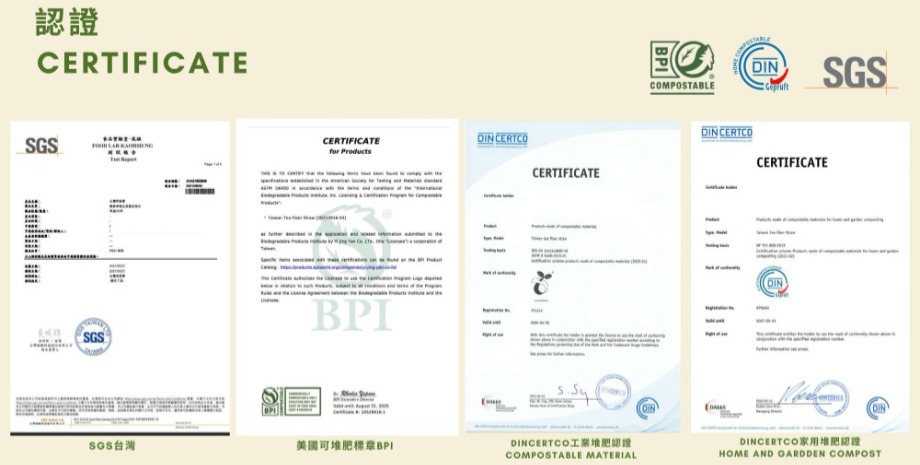
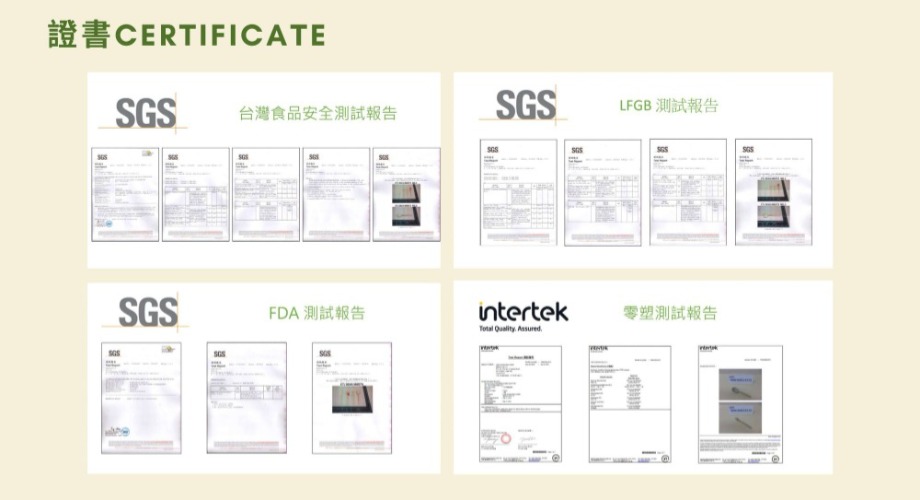
Conclusion
-
Biodegradability:These products are made entirely from materials that are biodegradable, meaning they can naturally break down into harmless substances after being discarded or disposed of, without causing long-term pollution to the environment. This helps reduce the accumulation of solid waste and decreases the demand for natural resources.
-
Compostability:These products are free from plasticizers and harmful substances, making them non-toxic to both humans and the environment. This means that during production, use, and disposal, no harmful substances are released, reducing health risks and protecting the environment from pollution.
-
No Plasticizers and Non-toxicity:These products are free from plasticizers and harmful substances, making them non-toxic to both humans and the environment. This means that during production, use, and disposal, no harmful substances are released, reducing health risks and protecting the environment from pollution.
Such products align with the principles of environmental protection and sustainable development, contributing to reducing the burden on the Earth and promoting efficient resource utilization. By choosing these products, we can make a contribution to environmental conservation and a sustainable future while ensuring a more eco-friendly and healthy lifestyle.
If there are any issues with the provided information, please feel free to point them out. We welcome your feedback. If you have any manufacturing or outsourcing needs, please don't hesitate to contact us. Give Active Life a chance to assist you.


